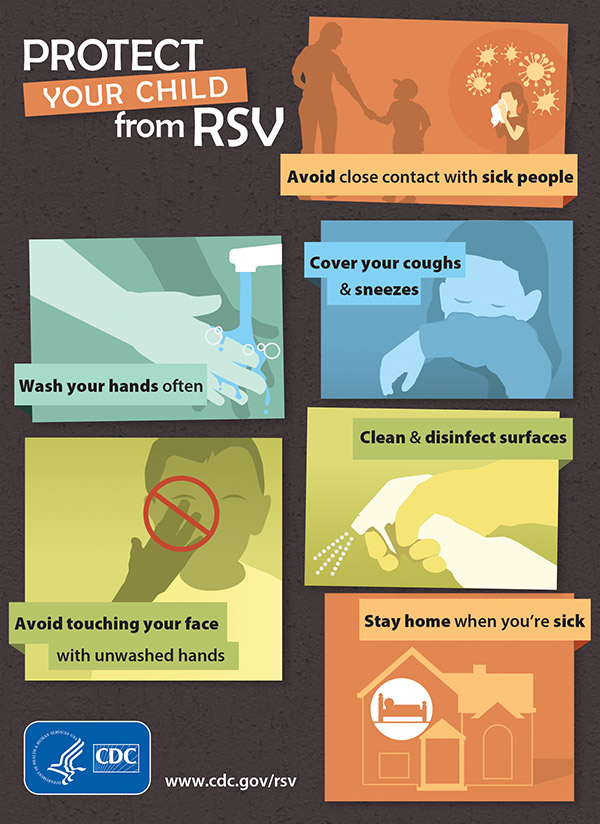
This time of year can be especially tough on families with little ones - holidays bringing lots of new faces together, colds and flu running through classrooms. With immature immune systems, fall and winter can bring many new illnesses for a small child to battle. One illness in particularly on parents' radar is RSV.
What is RSV?
Respiratory syncytial virus, or RSV, is a common respiratory virus that usually causes mild, cold-like symptoms. Most people recover in a week or two, but RSV can be serious, especially for infants and older adults. RSV is the most common cause of bronchiolitis (inflammation of the small airways in the lung) and pneumonia (infection of the lungs) in children younger than 1 year of age in the United States.
How does RSV spread?
RSV can spread when:
- An infected person coughs or sneezes
- You get virus droplets from a cough or sneeze in your eyes, nose, or mouth
- You have direct contact with the virus, like kissing the face of a child with RSV
- You touch a surface that has the virus on it, like a doorknob, and then touch your face before washing your hands
What can you do to prevent a child from being infected by RSV?
There are steps you can take to help prevent the spread of RSV. Specifically, if you have cold-like symptoms you should:
- Cover your coughs and sneezes with a tissue or your upper shirt sleeve, not your hands
- Wash your hands often with soap and water for at least 20 seconds
- Avoid close contact, such as kissing, shaking hands, and sharing cups and eating utensils, with others
- Clean frequently touched surfaces such as doorknobs and mobile devices
Another very important prevention tip is to NOT KISS BABIES. While those chubby cheeks and new-baby smell are very tempting to snuggle, do not kiss babies or come face-to-face with them. They are particularly at risk for getting ill, and can experience serious symptoms like wheezing, difficulties breathing, and a cough.
The information in this blog is from the CDC. For more resources and answers to your questions about RSV, visit the CDC's website HERE.
